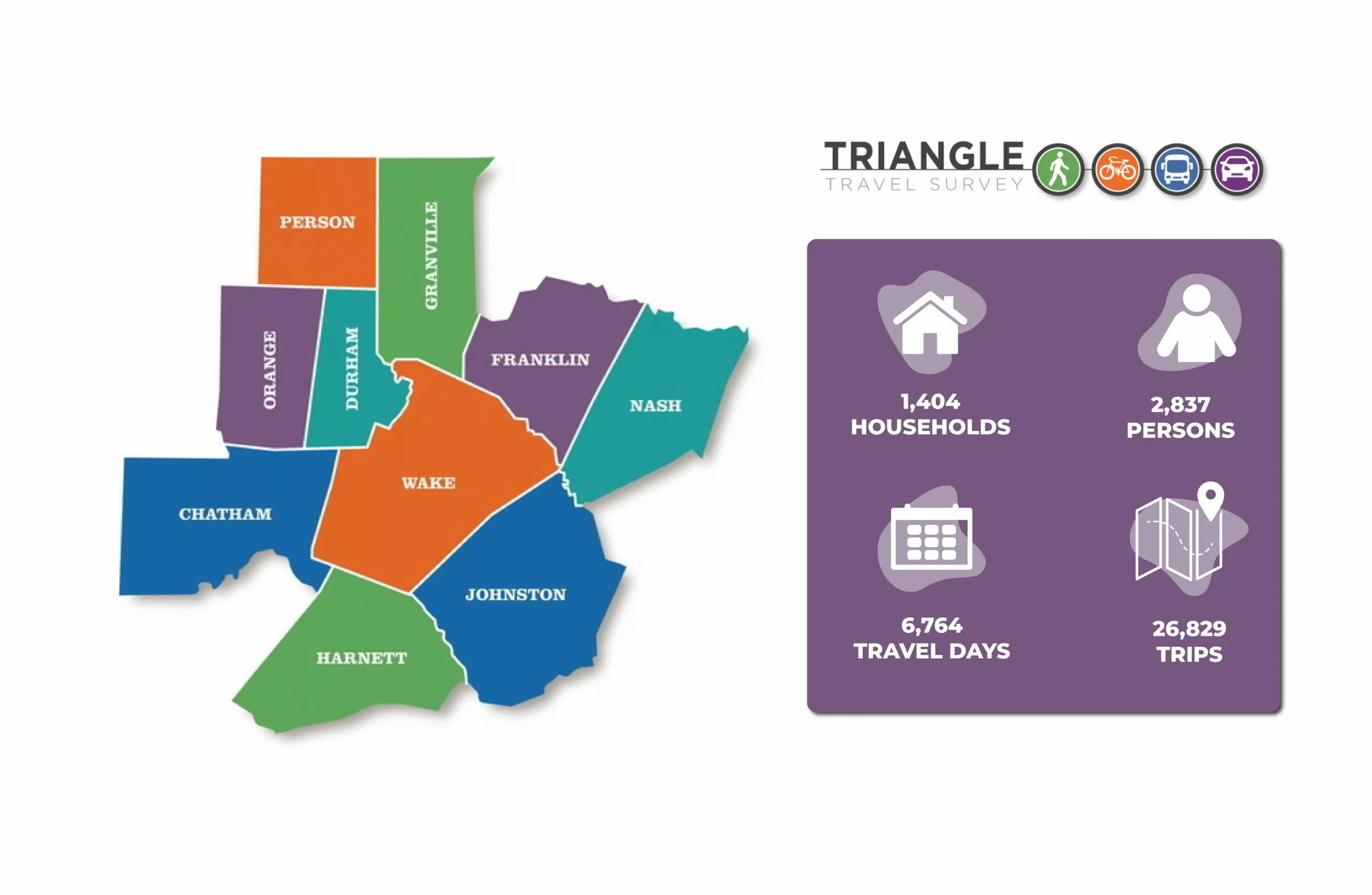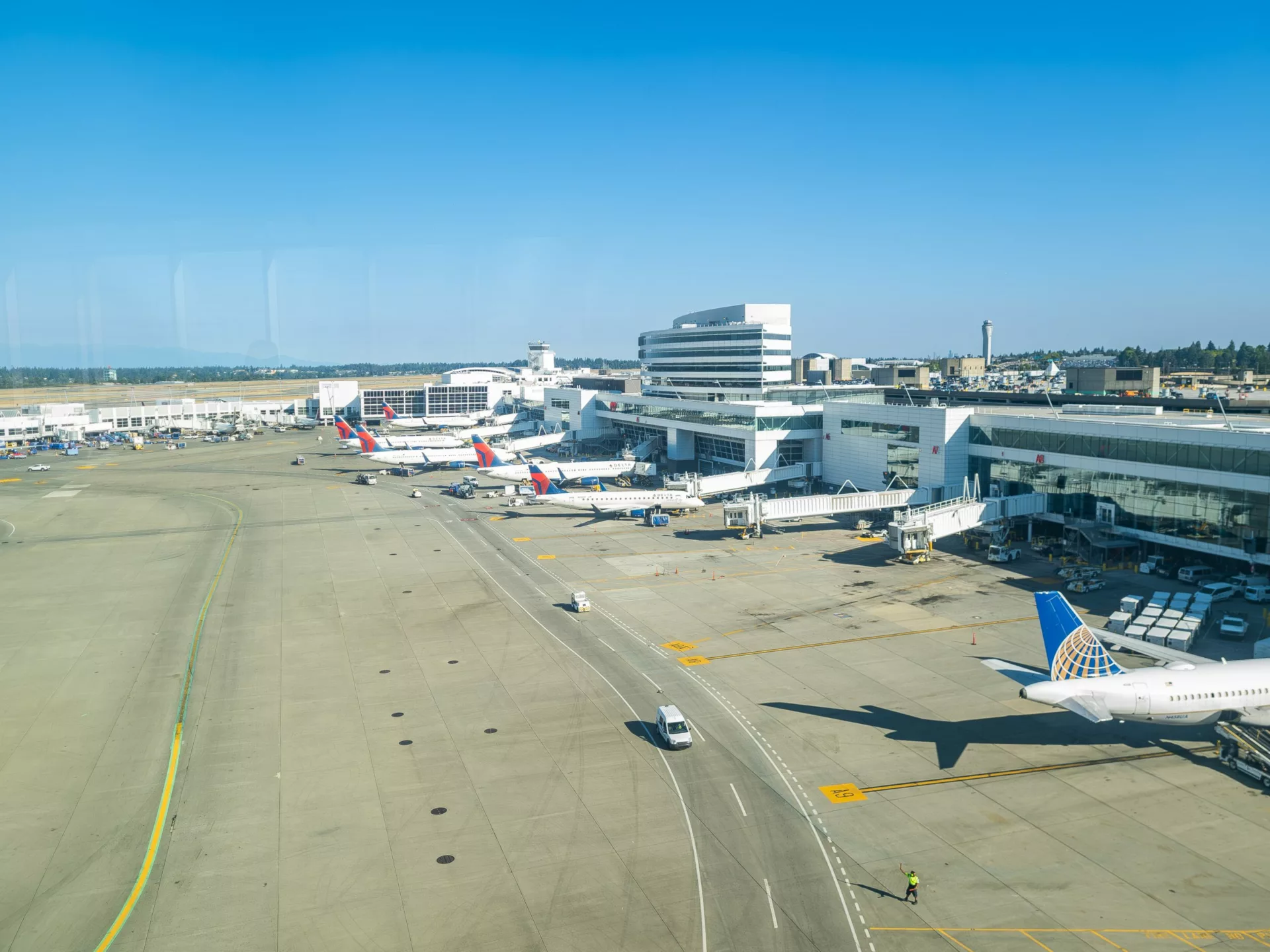Every two years since 2016, the North Carolina State University Institute for Transportation Research and Education (NCSU-ITRE) conducts the Triangle Travel Survey to collect current information about household and individual travel patterns throughout the greater Raleigh-Durham (Triangle) region.
The findings from these studies are used by the Capital Area Metropolitan Planning Organization, the Durham-Chapel Hill-Carrboro Metropolitan Planning Organization, the North Carolina Department of Transportation, and GoTriangle to support transportation planning, project development, and future transportation investments.
The Challenge
The past decade has been characterized by changes in demographics and even more rapid changes in technology and travel patterns. More recently, the pandemic has accelerated shifts in travel behavior as the rise of remote and flexible work arrangements influences commuting patterns.
In response, innovations in survey methods have allowed for the collection of the same type and quality of data in an ever-changing environment. These changes, which include a shift from decennial surveys to recurrent surveys, allow for more nimble policy and planning responses to evolving travel behavior.
The Triangle region has been able to gain a greater understanding of the role new technologies and changing demographics have on travel behavior through their participation in the recurring Triangle Travel Survey, which RSG has conducted every two years since 2016. Compared to more infrequent travel survey programs, recurrent survey programs offer organizations such as NCSU-ITRE the ability to monitor emerging technologies and travel trends to be more responsive to these changes.
RSG’s Solution
The 2022 Triangle Travel Survey builds on many aspects of the previous years’ studies, including the addition of smartphone data collection (which was introduced in 2021). Leveraging traditional methods as well as rMove®, RSG’s smartphone survey app, our researchers were able to collect data from 1,404 households across a multiday period, exceeding the study’s 1,100 household goal for the 10-county greater Triangle region.
RSG was also able to significantly reduce the respondent burden by adapting survey questions and using passively collected data from rMove to log trips and more effectively capture short and atypical trips. To further improve response rates and representativeness, RSG adjusted sampling methods to better target hard-to-reach and underrepresented populations. The team also employed various incentive structures to encourage response overall and test methods for future years.
The recurrent nature of the Triangle Travel Survey program enables local transportation planning agencies to monitor changes in the region, particularly as travel behavior continues to evolve following the pandemic. For instance, the 2022 survey revealed an increase in commuting among the region’s residents, but in-person work remains below prepandemic levels. Similarly, there has been an increase in overall trip-making across most modes and trip purposes; however, these rates have not yet returned to the levels observed in 2016 and 2018.
As changes in travel behavior accelerate, recurrent surveys like the Triangle Travel Survey will play a pivotal role in allowing organizations to track dynamic travel patterns quickly and accurately. RSG continues to lead and innovate in this field through our survey-based research, helping organizations like NCSU-ITRE rise to the challenge of conducting household travel surveys to unlock deeper insights into regional transportation planning.






